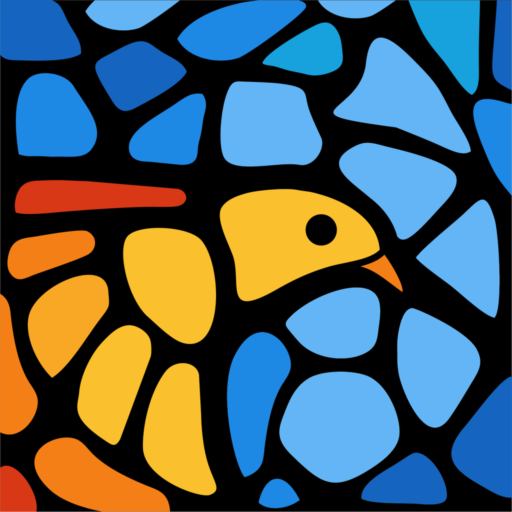
Bird collisions with windows are a major cause of bird fatalities worldwide. According to estimates, up to 1 billion birds die each year from collisions with windows in the UK alone. These collisions are preventable, and there are many things we can do to help reduce the number of bird collisions with windows. In this article, we’ll discuss how to prevent bird collisions with windows and what to do when it happens.
Installing window decals can be an effective way to prevent bird collisions with windows. Decals help to break up the reflection of the sky, trees, and other natural features that birds use to navigate. Decals can come in a variety of designs, such as birds of prey, birds in flight, or simple dots or squares. They can be purchased online or at birding stores.
Window films can also be used to prevent bird collisions with windows. These films create a frosted or opaque appearance on the glass, making it more visible to birds. Films can be purchased in a variety of styles, including decorative patterns or plain sheets. Some films are designed to be temporary and can be easily removed, while others are more permanent.
Netting can be used to prevent bird collisions with windows. This method is especially effective for larger windows or areas where decals or films may not be feasible. Netting should be installed tightly against the window to prevent birds from getting caught in the mesh. It is important to check the netting regularly for any tears or damage.
Bird feeders can attract birds to your yard, but they can also increase the likelihood of bird collisions with windows. If you have a bird feeder near a window, consider moving it to a different location. If moving the feeder is not an option, consider installing decals or films on the window to make it more visible to birds.
Planting native shrubs and trees can help prevent bird collisions with windows. These plants provide birds with natural cover and can help to break up the reflection of the sky and trees on windows. They can also attract birds to your yard and provide food and nesting sites.
Turning off lights at night can help prevent bird collisions with windows. Many birds migrate at night and are attracted to light. When birds fly towards light, they can become disoriented and collide with windows. Turning off lights or closing curtains and blinds can help reduce the likelihood of bird collisions.
One-way glass can be used to prevent bird collisions with windows. This type of glass is transparent from one side but appears opaque from the other. This can be an effective way to prevent bird collisions while still allowing natural light to enter the room.
If a bird collides with a window, it is important to act quickly. Here are some steps you can take to help the bird:
Check the bird for any signs of injury. If the bird appears injured, contact a local wildlife rehabilitation center for assistance. If the bird does not appear injured, it may just be stunned and will need some time to recover.
If the bird is in danger of being attacked by predators or is in a high traffic area, it may be necessary to move it to a safer location. Use gloves or a towel to pick up the bird and move it to a nearby tree or bush.
If the bird appears uninjured, it may just need some time to recover. Provide the bird with water and food, such as birdseed or fruit. Place the food and water near the bird but not too close, so as not to startle it. It is important to monitor the bird to make sure it is eating and drinking.
If the bird appears to be stunned, keep it warm and quiet. Place the bird in a warm, dark, and quiet place, such as a cardboard box or a pet carrier. Cover the box or carrier with a towel to keep it dark and quiet. Check on the bird every 30 minutes to see if it has recovered.
Once the bird has recovered, it can be released back into the wild. Take the bird to a safe location, such as a nearby tree or bush, and release it. Make sure the bird has a clear path to fly away and is not in danger of colliding with any nearby windows or obstacles.
Bird collisions with windows are a preventable problem. By installing window decals or films, using netting, planting native shrubs and trees, turning off lights at night, and using one-way glass, we can help reduce the number of bird collisions with windows. If a bird does collide with a window, it is important to act quickly and provide assistance. By taking these steps, we can help protect our feathered friends and ensure that they continue to thrive in our world.
